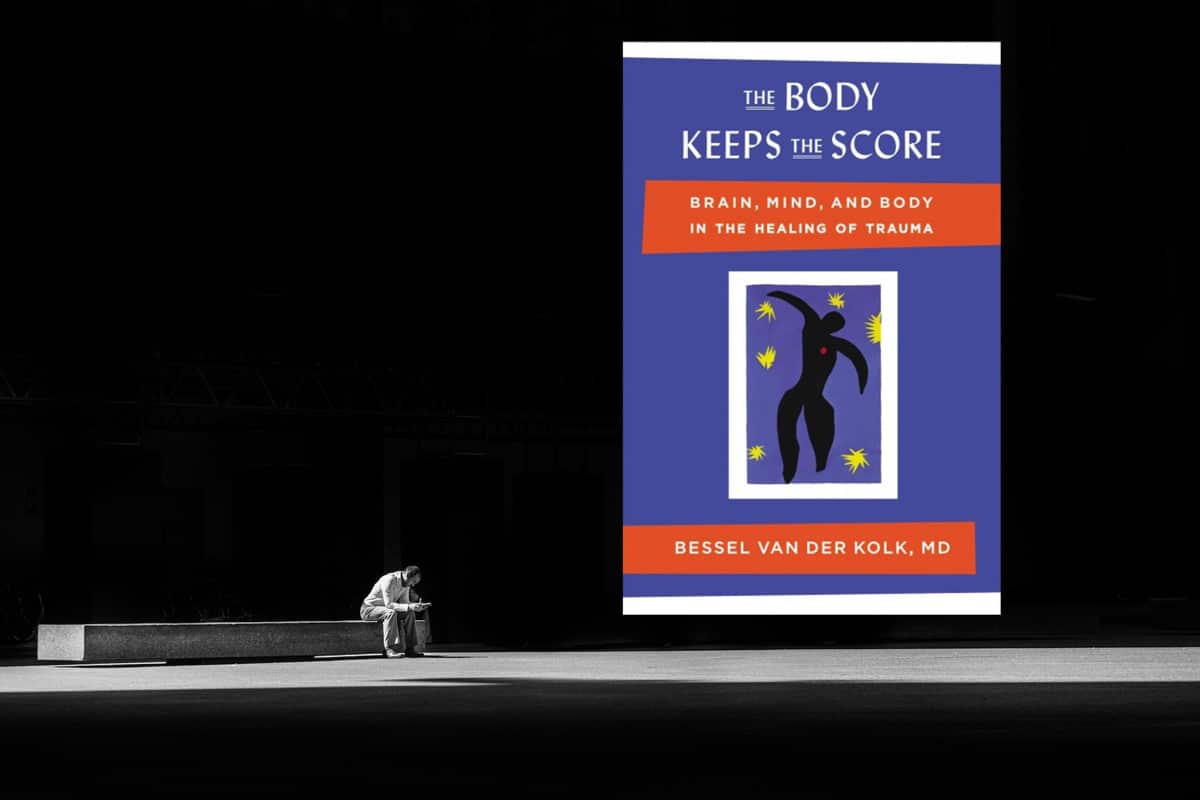 Hannah Milton is a GP, mum, and a runner.
Hannah Milton is a GP, mum, and a runner.
Written in 2014, I would describe this as the seminal book about the effects of traumatic experiences on mental and physical health. It is essential reading for anyone working with people affected by trauma, which, I propose, includes the whole medical profession. We have a particularly unique position as GPs to try and spot the symptoms and behaviours that could indicate a history of trauma.
Bessel van der Kolk was born in the Netherlands but trained as a psychiatrist in the US. He has undertaken research trials and was a trailblazer in the psychopharmaceutical revolution that saw whole buildings of institutionalised patients reintegrated into the community.
His book is a mix of robust studies into the long-term effects of traumatic experiences and ways to manage the symptoms, interspersed with real-life stories of patients that he has worked with. He believes strongly in having an evidence base to the treatments for his patients, so there are some specific suggestions as well as more nebulous broad themes.
“The book takes you on van der Kolk’s own journey of learning about trauma”
The book takes you on van der Kolk’s own journey of learning about trauma. He is open about his own misconceptions and naïve moments as he trained as a psychiatrist, and how he came to understand the complexities of traumatic life experiences.
This journey taught me the modern history of psychiatry from patients locked away in large hospitals, through the discoveries of clozapine and fluoxetine, to how the Diagnostic and Statistical Manual of Mental Disorders (DSM) was created.
Van der Kolk lobbied hard to get ‘developmental trauma’ recognised as a specific diagnosis beyond post-traumatic stress disorder (PTSD). He was very frustrated that despite his hard work, developmental trauma was not in DSM-5 (2013), nor was it in the updated DSM 5-TR (2022). (However, complex PTSD has now been recognised in the International Classification of Diseases, 11th Revision (2022) and there is a section on complex PTSD in the National Institute for Health and Care Excellence PTSD guideline from December 2018.)
The book explores the neuroscience of what happens to the brain when exposed to traumatic incidents and how this can lead to a heightened ‘alarm system’ in the future. The effects of this can vary between patients and van der Kolk describes dissociation, depersonalisation, hypervigilance, addictive behaviours, self-harm, and relational difficulties.
“The book explores the neuroscience of what happens to the brain when exposed to traumatic incidents”
He regularly uses the phrase ‘know what you know and feel what you feel’. By this he means that it is important for people affected by trauma to be able to acknowledge the realities of what happened (and this can be fragmented for people traumatised as children), as well as allowing themselves to feel their emotions.
Traumatised people can become adept at suppressing or ignoring emotion and may present with physical symptoms instead. This was a survival technique when enduring prolonged trauma but is unhelpful when no longer in the traumatic situation. He describes alexithymia (‘no words for feelings’), which can be common in PTSD. This is a state in which people are unable to sense their own physical sensations in order to know what they are feeling emotionally.
I have certainly seen this with patients who look depressed but deny any low mood. Suppression of emotion can become hard-wired into the brain. It can be re-wired, but it is not easy. Van der Kolk also describes patients so detached from their physical body that they are unable to work out which part of their body is being touched during massage therapy, or patients who become really disorientated if they are facing away from a therapist.
“This is a long, detailed, and, at times, harrowing book, but it is worth the effort”
Van der Kolk talks about synchronous activity (such as choirs, group yoga or Pilates, dance, and martial arts, or really any form of exercise or movement) as a way to re-wire a traumatised brain. This allows traumatised people to learn to feel different parts of their body while also building relationships with others. Relational trauma, particularly in childhood, can be devastating because connection with others is essential for health and happiness.
He explains about Eye Movement Desensitisation Reprogramming (EMDR) and his own initial skepticism about the method (which I admit I shared before reading more about it!). While it is still unknown exactly how it works, there is some good evidence that it does, and he gives many real-life examples of how he has used EMDR with his own patients. He also discusses cognitive behavioural therapy, yoga, neurofeedback, and mindfulness, as well as other therapies and activities that can help.
This is a long, detailed, and, at times, harrowing book, but it is worth the effort. As I listened, I found myself reflecting on many of my regular patients who are stuck in the familiar ‘symptom — investigation — referral — discharge without diagnosis’ cycle. I now have a deeper understanding of their situation and some new tools to try and help them.
Featured book: Bessel van der Kolk, The Body Keeps the Score: Mind, Brain and Body in the Transformation of Trauma, Viking, 2014, HB, 464pp, £16.59, 978-0670785933.
Featured photo by Matthew Henry on Unsplash.







To publish something online, I would think that a practicing physicians should have words correctly spelled and correct punctuation. . . . . . just saying! I thought that was a given! 🙂